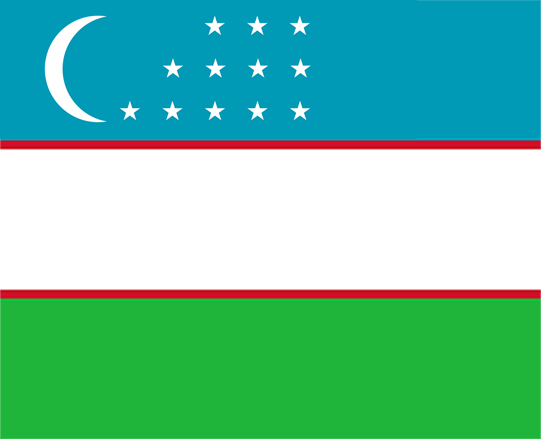Turkmenistan
Turkmenistan criminalises same-sex sexual activity between men. Sentences include a maximum penalty of two years’ imprisonment.
Last updated: 17 December 2024
Same-sex sexual activity is prohibited under the Criminal Code 1994, which criminalises ‘voluntary sexual intercourse of two male individuals’. This provision carries a maximum penalty of three years’ imprisonment. Only men are criminalised under this law.
A former Soviet Union state, Uzbekistan gained its independence in 1991. Although Russia and most former Soviet states opted not to criminalise same-sex sexual activity in their new criminal law regimes of the 1990s, Uzbekistan was one of two which chose to continue criminalising after the Soviet Union dissolved (the other being Turkmenistan).
There is substantial evidence of the law being enforced in recent years, with LGBT people being frequently subject to arrest, as well as extortion by threat of arrest. There have been consistent reports of discrimination and violence being committed against LGBT people in recent years, including murder, assault, harassment, and the denial of basic rights and services.
In February, Uzbekistan’s Prosecutor General’s Office published a new draft Criminal Code for public discussion. Despite calls to decriminalise from international human rights bodies and civil society, this draft retains the offence currently under article 120, although it is renumbered to article 154 under ‘crimes against family, morality, and children’. The Human Dignity Trust issued a statement on this proposal, outlining how the law fails to comply with international human rights standards.
Joint statement from ILGA Europe, HDT and other human rights organisations

The Ministry of Interior Affairs announced that between 2016 and 2020, 44 people had been prosecuted under article 120, with 49 serving prison sentences at the time of the announcement.
In November, the media reported that authorities arrested an assistant to the Chair of the Supreme Court for “homosexual relations”. The reports suggested that the person had been extorted for money by his long-term partner, who leaked videos of them having sex when he refused to continue paying.
Between August and September, several gay people were arrested and detained during a police operation targeting members of the LGBT community.
The US Department of State report stated that the law was enforced during the year, and that according to the LGBT community, police and other law enforcement personnel used the threat of arrest or prosecution to extract heavy bribes from gay men.
In December, two men were arrested for same-sex sexual activity, and were subject to intrusive medical ‘examinations’ in an effort to ‘prove’ the acts.
Homosexuality is disgusting to Uzbeks.
In March, an Uzbek human rights activist and pro-democracy campaigner was hospitalised following a severe assault by a group of men. The attack is thought to be linked to his support for the decriminalisation of same-sex sexual activity. The assault followed a public event hosted by the victim, which had been disrupted by dozens of aggressive men. In April it was reported that he had been placed under house arrest following his release from hospital, having been charged with offences of libel and public insult. He was sentenced to three years’ restricted freedom in January 2022.
A report released by Human Rights Watch in March documented the treatment of gay men in Uzbekistan. It stated that they faced arbitrary detention, prosecution, homophobia, threats, attacks, and extortion.
Also in April, a journalist was threatened for reporting on the attack which the Ministry of Interior Affairs claimed violated the country’s media laws.
In August, it was reported that authorities had subjected at least six men to forced anal ‘examinations’ between 2017 and 2021.
The US Department of State report stated that society considered same-sex conduct a taboo subject and deeply negative social attitudes limited the freedom of expression of the LGBT community. There were no known LGBT organisations.
A shadow report to the Human Rights Committee documented a range of discrimination against LGBT people in Uzbekistan, including harassment, violence, restricted freedom of association, and discrimination in access to healthcare and justice.
In September, a man was found dead just days after revealing that he was gay on social media. He suffered several knife wounds in his neck and arms. Two people were charged with murder.
In September, it was reported that a group of men stripped, beat, and abused a person they suspected of being gay. A video of the incident was published on social media. The group were all arrested and detained by police.
Turkmenistan criminalises same-sex sexual activity between men. Sentences include a maximum penalty of two years’ imprisonment.
Afghanistan criminalises same-sex sexual activity between men and between women. Sentences include a maximum penalty of death.
Iran criminalises same-sex sexual activity between men and between women. Sentences include a maximum penalty of death.
The country profiles on the Human Dignity Trust’s website are developed through a combination of in-house expertise and research, including monitoring media reports; sourcing reports from partners and stakeholders; and reviewing reports from governments and other human rights organisations.
We go to great lengths to ensure that, to the best of our knowledge, the information provided on our website is correct and up to date. If you believe that any information on our website is inaccurate, you may bring this to our attention by e-mailing administrator@humandignitytrust.org.
Information on this website is provided for general use only and should not be relied on as a definitive position on the law as it applies at any given time. No liability can be accepted for any use of the information in this website and/or links from it.
Over 60 countries still criminalise LGBT people. Together, we can bring this number down. A donation today will help continue our vital support for LGBT people and governments seeking to change laws around the world.
DonateJoin our newsletter to receive regular updates about decriminalisation efforts around the world, including breaking news on key legal cases, hot off the press reports, invitations to events and messages from our Chief Executive.